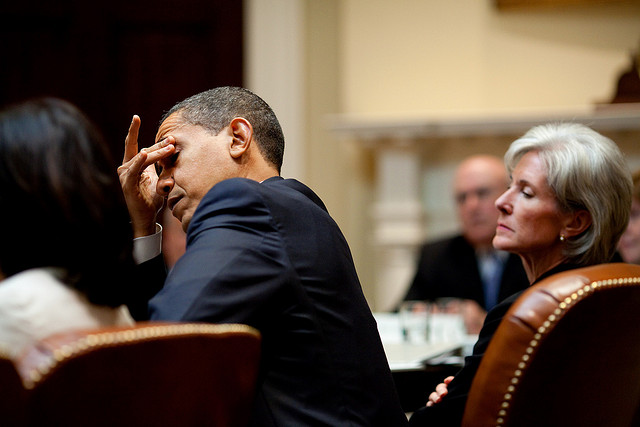Sorry, Obamacare: Private Health Exchange Captures Young Adults
Marguerite Bowling /
As Obamacare marketers step up efforts to enroll more young adults, private health exchange eHealth announced that four out of every 10 of its new customers in the final quarter of 2013 were in that coveted category.
According to Kaiser Health News, eHealth CEO Gary Lauer said in an earnings call last week that 40 percent of 169,000 customers who used his online marketplace to buy health insurance from October through December were young adults.
An often sought-after demographic by insurers because they are typically healthier and cheaper to insure, young adults are especially important for Obamacare. The health law’s state and federal exchanges need enough young adults (originally, 40 percent of the entire participant pool) to balance out costs from sicker and older enrollees, who no longer can be turned away for coverage for any reason.
As of February 1, the Health and Human Services Department said 3.3 million Americans had signed up for a plan on Obamacare’s exchanges, with 25 percent of them between ages 18 and 34. However, Obamacare officials have not specified how many had paid their first month premiums, the industry norm for standard enrollment.
Meanwhile, the Obama Administration launched several pitches and initiatives to spur young adults to enroll. Most recently, First Lady Michelle Obama appeared on The Tonight Show, referring to young adults who think they are invincible as “knuckleheads” and encouraging them to get coverage on HealthCare.gov.
By the end of 2013, eHealth, which offers a variety of private health plans and collects commissions from insurers, reported total estimated membership was 1,244,900 — an increase of 27 percent from 982,900 a year earlier. The Mountain View, Calif.-based company’s revenues for the fourth quarter shot up to $54.2 million, 20 percent higher than $45.3 million for the same quarter in 2012.
This story was produced by The Foundry’s news team. Nothing here should be construed as necessarily reflecting the views of The Heritage Foundation.

